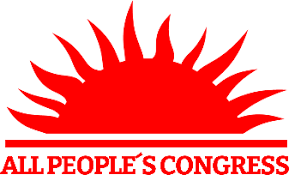By Y. Conteh & A. Howard (Purposeful)
Death from abortion is the fifth leading cause of death for women in Sierra Leone. In 2023 alone, approximately 1,400 women died seeking control over their reproduction. Somehow, the Inter-Religious Council had decided that this number is acceptable. How many of these preventable deaths should be allowed when we have an opportunity to stop them? How many women and girls should be permanently scarred in a futile attempt to make decisions about when and how they have children? Those of us who fight for the health and well-being of women believe that even one death is too many. Not one more woman or girl should face such a fate– especially when something can be safely done about it. Based on their stated position, the Inter-Religious Council disagrees.
Safe motherhood does not start from the moment a woman gives birth. The circumstances that determine whether motherhood is safe begin long before a child is born or even conceived. It is determined by the economic conditions that a woman is born into– will she have access to safe abortion if she does not come from a wealthy or influential family? It is decided by the circumstances of conception– was she violently raped, coerced or is she a victim of child sexual abuse? It is influenced by the circumstances of her marriage– is she in a controlling relationship where she cannot rely on her partner to ensure her best interests? It can also be decided by the circumstances of poverty that make having one more child another reason why she remains in poverty.
Whatever the situation, the inter-religious council seems to believe that women desperate enough to terminate a pregnancy deserve a death sentence, despite the Council’s chance to advocate for something better. The Safe Motherhood Bill provides that a woman, regardless of her economic status, her privilege and whatever her circumstances can seek the reproductive care she needs from qualified medical professionals– whether that involves the decision to conceive, accessing contraception or making the difficult decision to terminate a pregnancy. Yet the Council seems to believe that they, and they alone, should be able to determine the health and fate of the women of Sierra Leone. Or, that a woman must surrender all of the decisions about and control of her womb to the men in her life.
We disagree. We believe that the health of Sierra Leone’s women and girls should be in the hands of their medical providers. Women and girls should never have to risk death because of the agenda of those who would limit their access to reproductive care. We all know what is available quietly for those with money and what happens violently for those without. Abortion on demand is good enough for the rich and powerful and apparently not good enough for the poor.
In Sierra Leone we have faced generations of watching our sisters, daughters and mothers die because they were at their most desperate. We have an opportunity to change that– an opportunity to chart a new path forward and to secure the health of half of our population. We have a responsibility to do so. We also have a responsibility to stand against those that would take us back.













